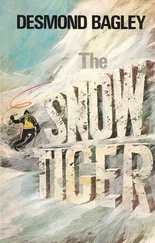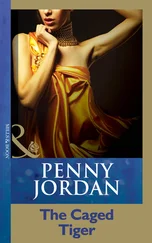The inspector pointed his cane straight at me. "You, young man, are an intelligent, honest, vivacious fellow in this crowd of thugs and idiots. In any jungle, what is the rarest of animals-the creature that comes along only once in a generation?"
I thought about it and said:
"The white tiger."
"That's what you are, in this jungle."
Before he left, the inspector said, "I'll write to Patna asking them to send you a scholarship. You need to go to a real school-somewhere far away from here. You need a real uniform, and a real education."
He had a parting gift for me-a book. I remember the title very well: Lessons for Young Boys from the Life of Mahatma Gandhi.
So that's how I became the White Tiger. There will be a fourth and a fifth name too, but that's late in the story.
Now, being praised by the school inspector in front of my teacher and fellow students, being called a "White Tiger," being given a book, and being promised a scholarship: all this constituted good news, and the one infallible law of life in the Darkness is that good news becomes bad news-and soon.
My cousin-sister Reena got hitched off to a boy in the next village. Because we were the girl's family, we were screwed. We had to give the boy a new bicycle, and cash, and a silver bracelet, and arrange for a big wedding-which we did. Mr. Premier, you probably know how we Indians enjoy our weddings-I gather that these days people come from other countries to get married Indian-style. Oh, we could have taught those foreigners a thing or two, I tell you! Film songs blasting out from a black tape recorder, and drinking and dancing all night! I got smashed, and so did Kishan, and so did everyone in the family, and for all I know, they probably poured hooch into the water buffalo's trough.
Two or three days passed. I was in my classroom, sitting at the back, with the black slate and chalk that my father had brought me from one of his trips to Dhanbad, working on the alphabet on my own. The boys were chatting or fighting. The teacher had passed out.
Kishan was standing in the doorway of the classroom. He gestured with his fingers.
"What is it, Kishan? Are we going somewhere?"
Still he said nothing.
"Should I bring my book along? And my chalk?"
"Why not?" he said. And then, with his hand on my head, he led me out.
The family had taken a big loan from the Stork so they could have a lavish wedding and a lavish dowry for my cousin-sister. Now the Stork had called in his loan. He wanted all the members of the family working for him and he had seen me in school, or his collector had. So they had to hand me over too.
I was taken to the tea shop. Kishan folded his hands and bowed to the shopkeeper. I bowed to the shopkeeper too.
"Who's this?" The shopkeeper squinted at me.
He was sitting under a huge portrait of Mahatma Gandhi, and I knew already that I was going to be in big trouble.
"My brother," Kishan said. "He's come to join me."
Then Kishan dragged the oven out from the tea shop and told me to sit down. I sat down next to him. He brought a gunnysack; inside was a huge pile of coals. He took out a coal, smashed it on a brick, and then poured the black chunks into the oven.
"Harder," he said, when I hit the coal against the brick. "Harder, harder."
Finally I got it right-I broke the coal against the brick. He got up and said, "Now break every last coal in this bag like that."
A little later, two boys came around from school to watch me. Then two more boys came; then two more. I heard giggling.
"What is the creature that comes along only once in a generation?" one boy asked loudly.
"The coal breaker," another replied.
And then all of them began to laugh.
"Ignore them," Kishan said. "They'll go away on their own."
He looked at me.
"You're angry with me for taking you out of school, aren't you?"
I said nothing.
"You hate the idea of having to break coals, don't you?"
I said nothing.
He took the largest piece of coal in his hand and squeezed it. "Imagine that each coal is my skull: they will get much easier to break."
He'd been taken out of school too. That happened after my cousin-sister Meera's wedding. That had been a big affair too.
* * *
Working in a tea shop. Smashing coals. Wiping tables. Bad news for me, you say?
To break the law of his land-to turn bad news into good news-is the entrepreneur's prerogative.
Tomorrow, Mr. Jiabao, starting again at midnight I'll tell you how I gave myself a better education at the tea shop than I could have got at any school. Right now, though, it's time for me to stop staring at this chandelier and get to work. It is almost three in the morning. This is when Bangalore comes to life. The American workday is coming to an end, and mine is beginning in earnest. I have to be alert as all the call-center girls and boys are leaving their offices for their homes. This is when I must be near the phone.
I don't keep a cell phone, for obvious reasons-they corrode a man's brains, shrink his balls, and dry up his semen, as all of us know-so I have to stay in the office. In case there is a crisis.
I am the man people call when they have a crisis!
Let's see quickly if there's anything else…
…any person having any information or clue about this missing man may kindly inform at CBI Web site (http://cbi.nic.in) e-mail ID (diccbi@cbi.nic.in), Fax No. 011-23011334, T No. 011-23014046 (Direct) 011-23015229 and 23015218 Extn. 210 and to the under-signed at the following address or telephone number or numbers given below.
DP 3687/05
SHO-Dhaula Kuan, New Delhi
Tel: 28653200, 27641000
Set into the text of the notice, a photograph: blurred, blackened, and smudged by the antique printing press of some police office, and barely recognizable even when it was on the wall of the train station, but now, transferred onto the computer screen, reduced to pixels, just an abstract idea of a man's face: a small creature with large, popped-out eyes and a stubby mustache. He could be half the men in India.
Mr. Premier, I leave you for tonight with a comment on the shortcomings of police work in India. Now, a busload of men in khaki-it was a sensational case, after all-must have gone to Laxmangarh when investigating my disappearance. They would have questioned the shopkeepers, bullied the rickshaw puller, and woken up the schoolteacher. Did he steal as a child? Did he sleep with whores? They would have smashed up a grocery shop or two, and forced out "confessions" from one or two people.
Yet I bet you they missed the most important clue of all, which was right in front of them:
I am talking of the Black Fort, of course.
I begged Kusum many times to take me to the top of the hill, and through the entranceway, and into the fort. But she said I was a coward, I would die of fright if I went up there: an enormous lizard, the biggest in the whole world, lived in the fort.
So I could only watch. The long loopholes in its wall turned into lines of burning pink at sunrise and burning gold at sunset; the blue sky shone through the slits in the stone, while the moon shone on the jagged ramparts, and the monkeys ran wild along the walls, shrieking and attacking each other, as if they were the spirits of the dead warriors reincarnated, refighting their final battles.
I wanted to go up there too.
Iqbal, who is one of the four best poets in the world-the others being Rumi, Mirza Ghalib, and a fourth fellow, also a Muslim, whose name I've forgotten-has written a poem where he says this about slaves:
They remain slaves because they can't see what is beautiful in this world.
That's the truest thing anyone ever said.
Читать дальше












